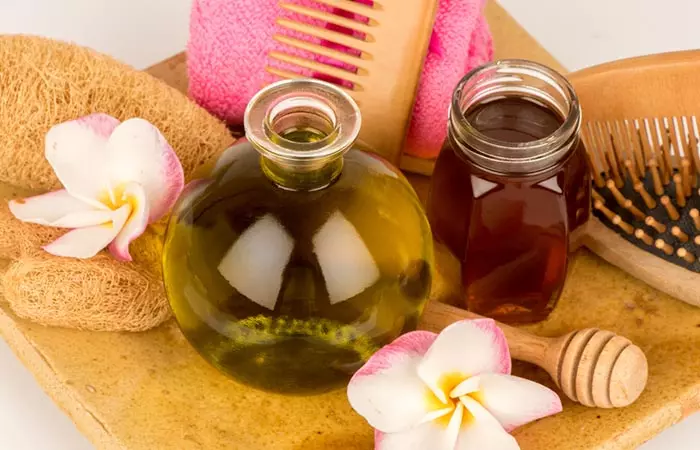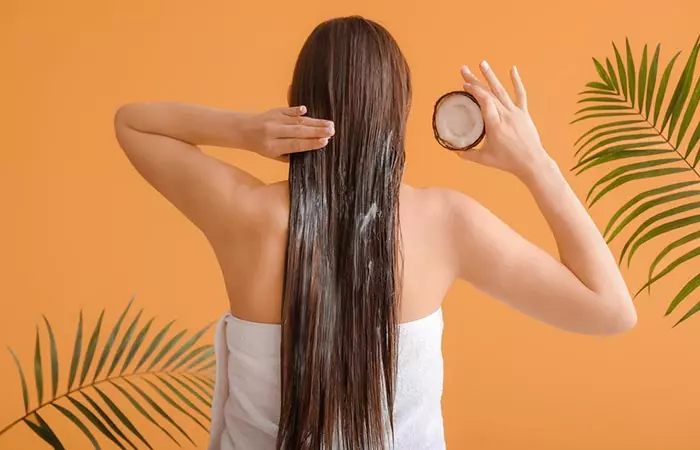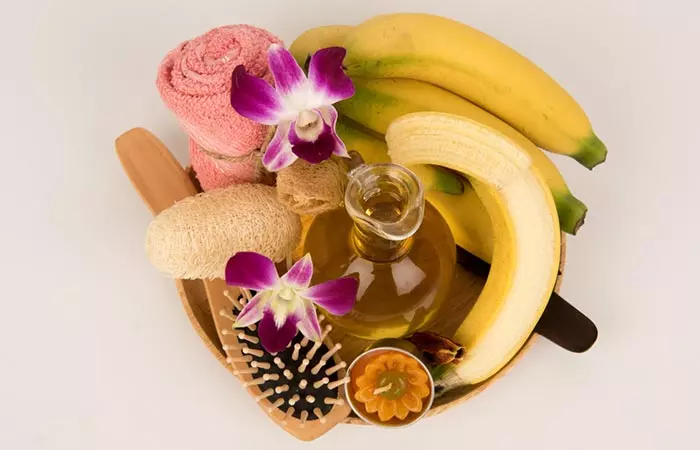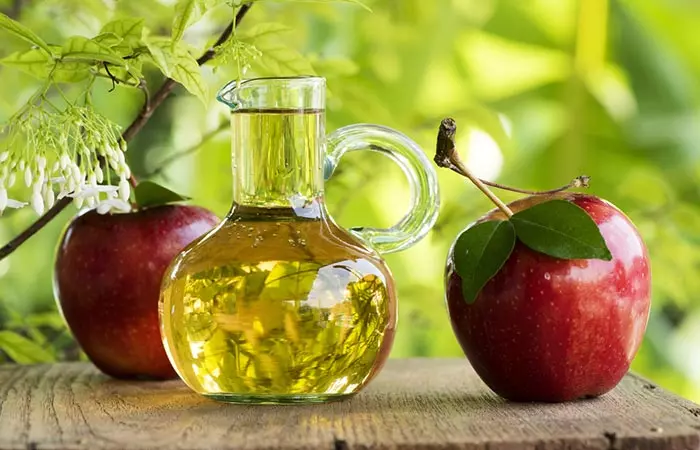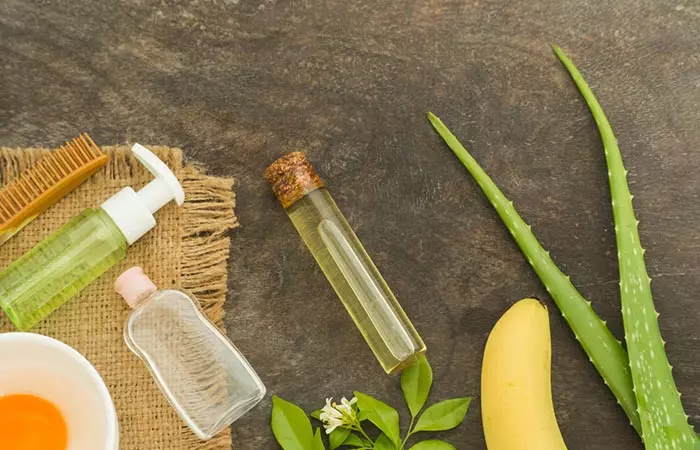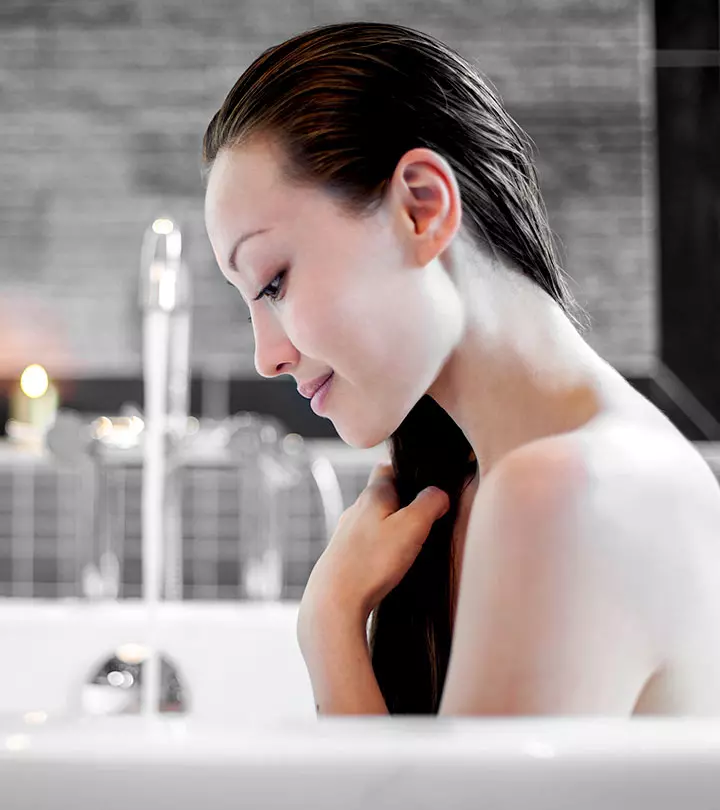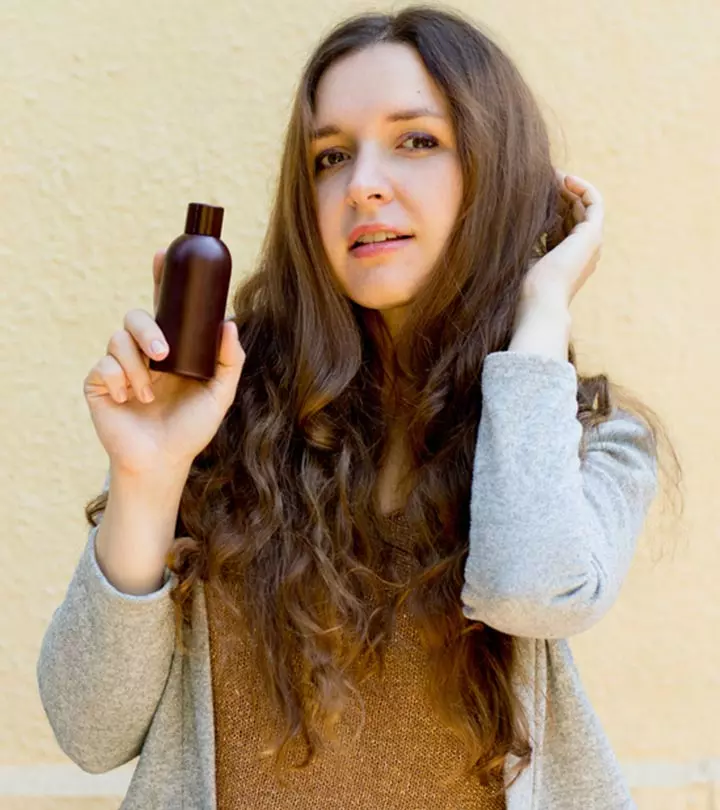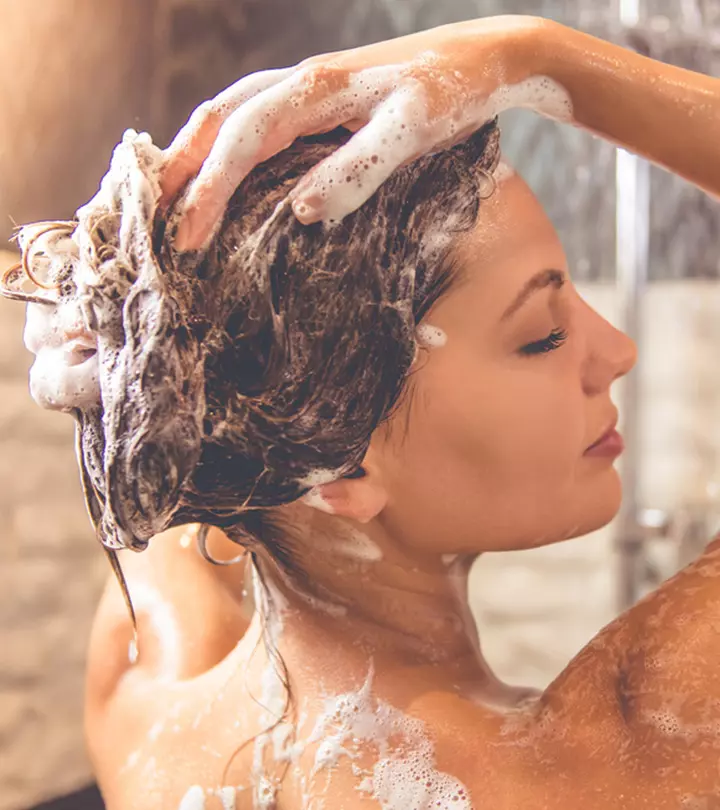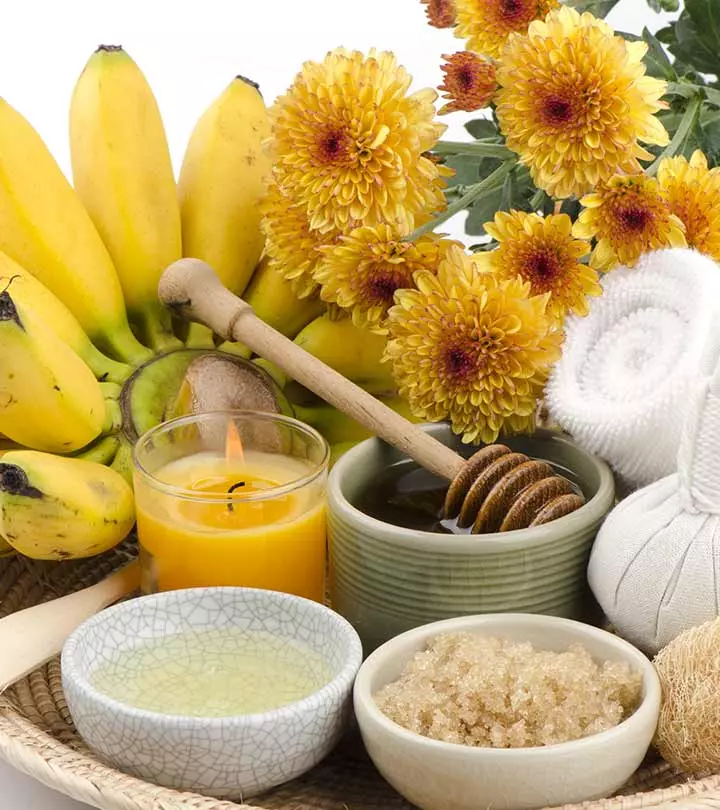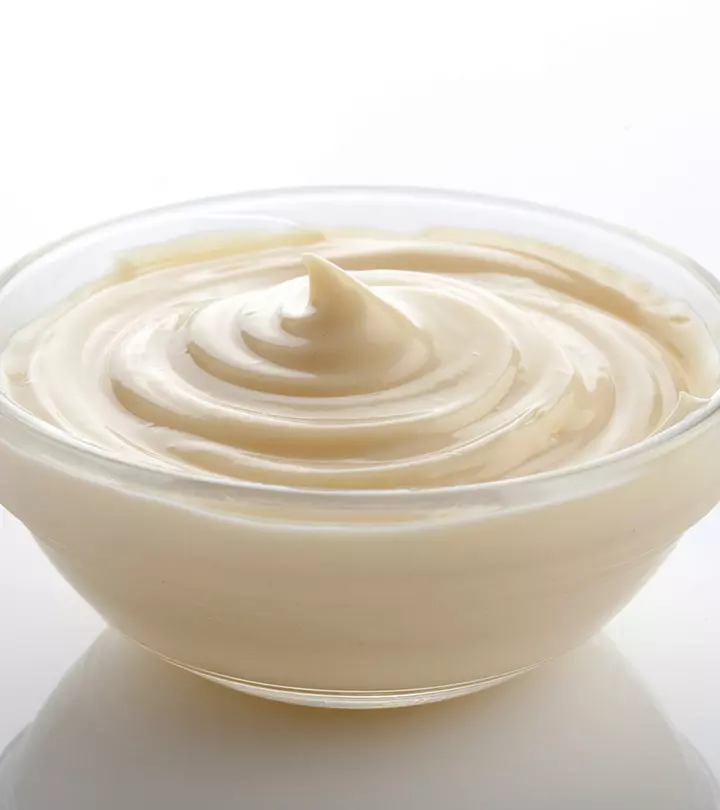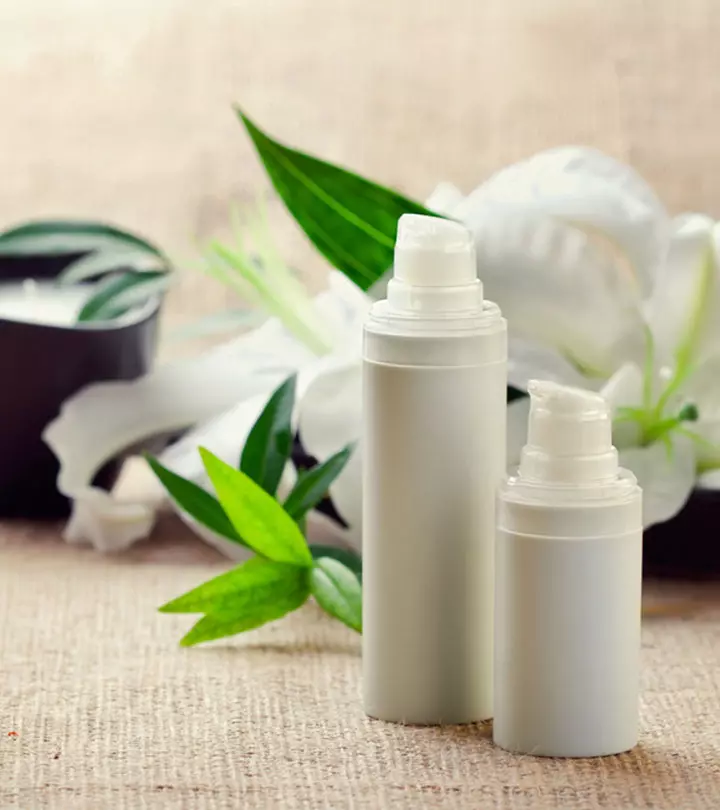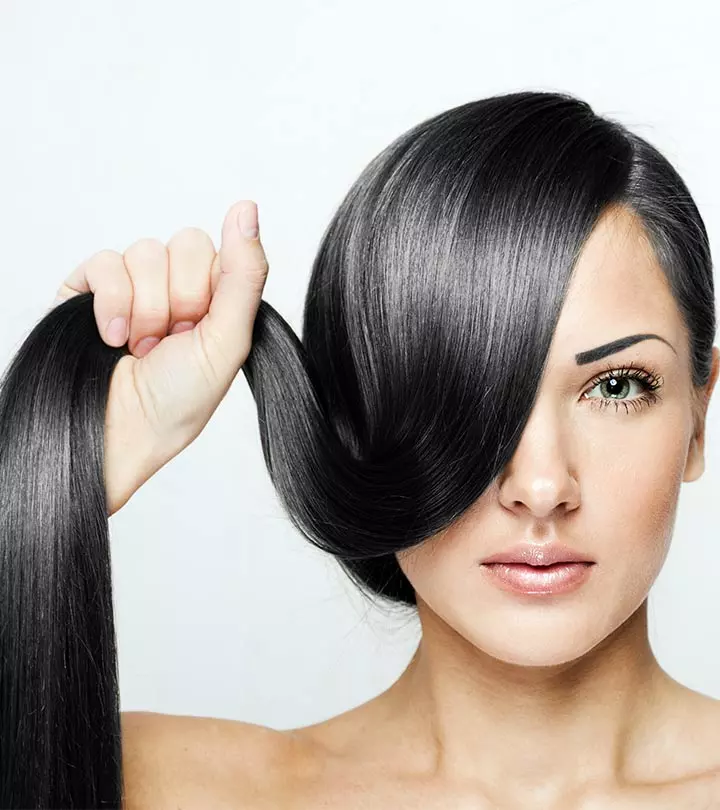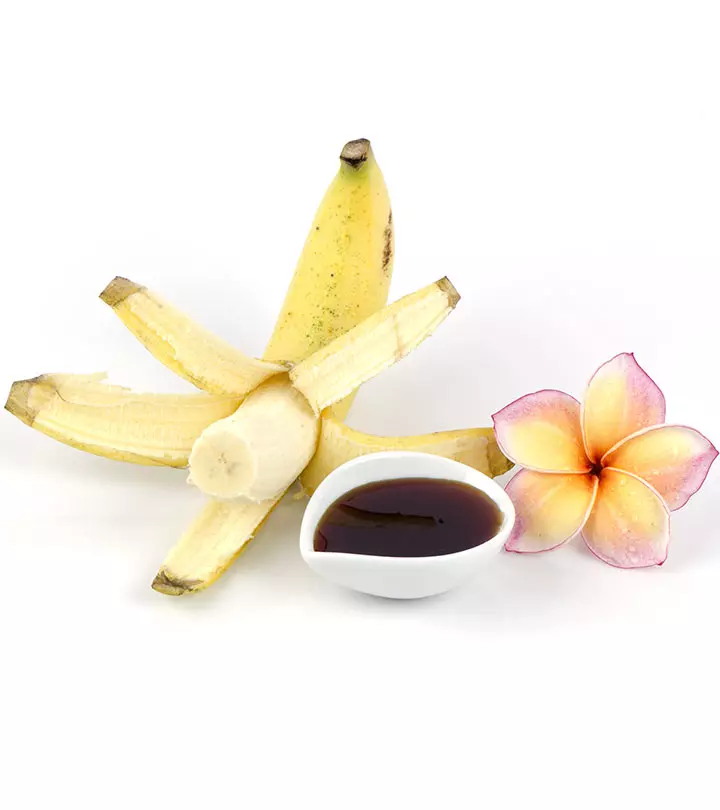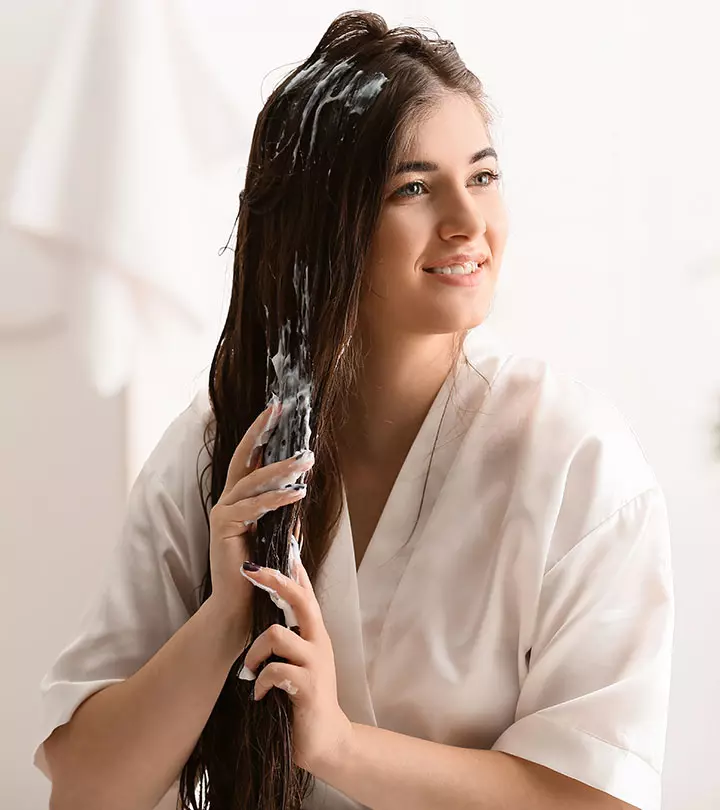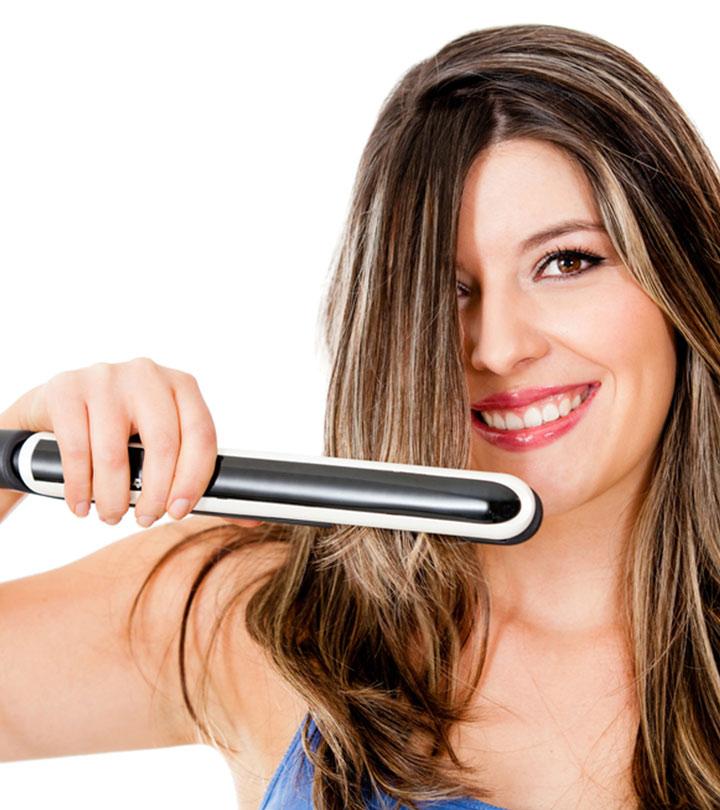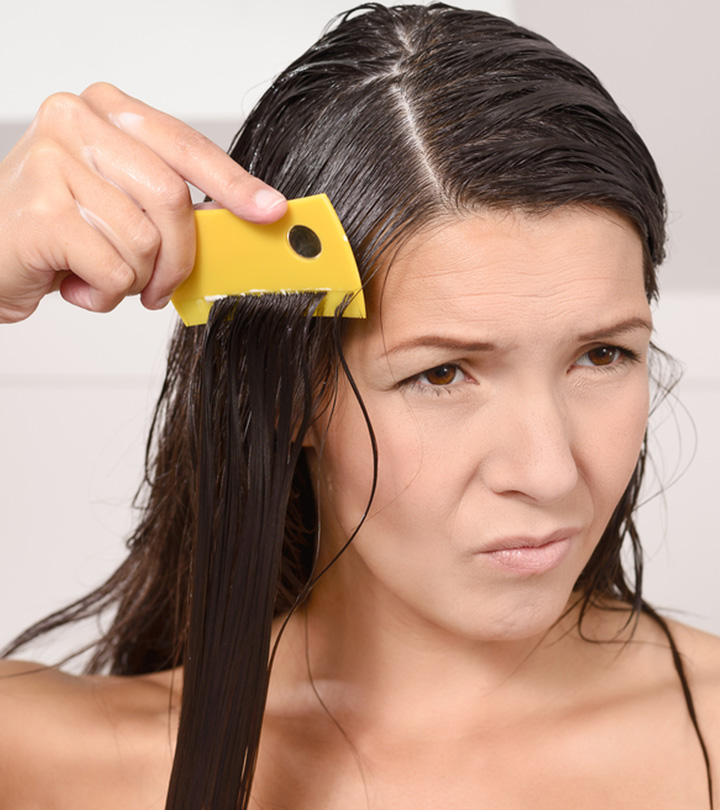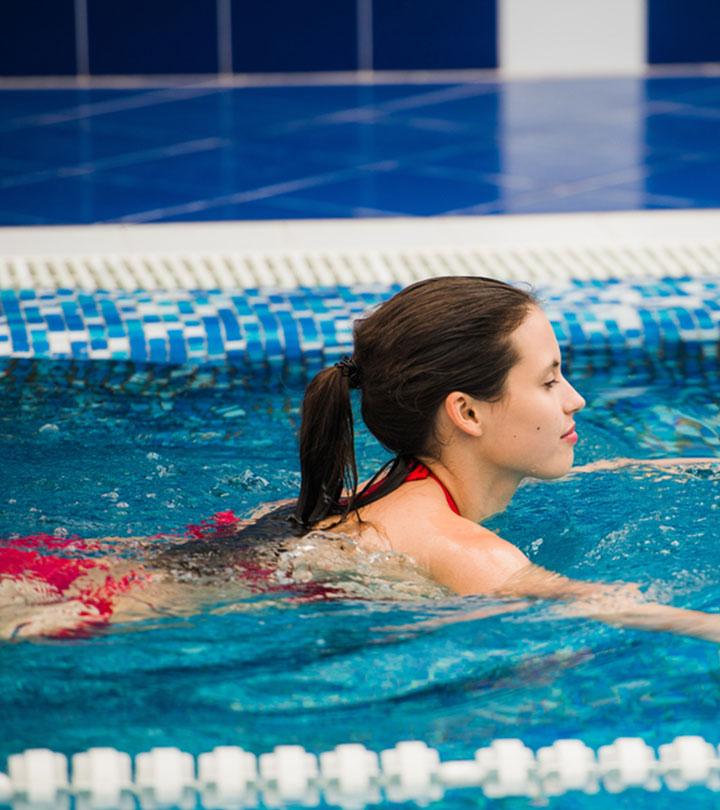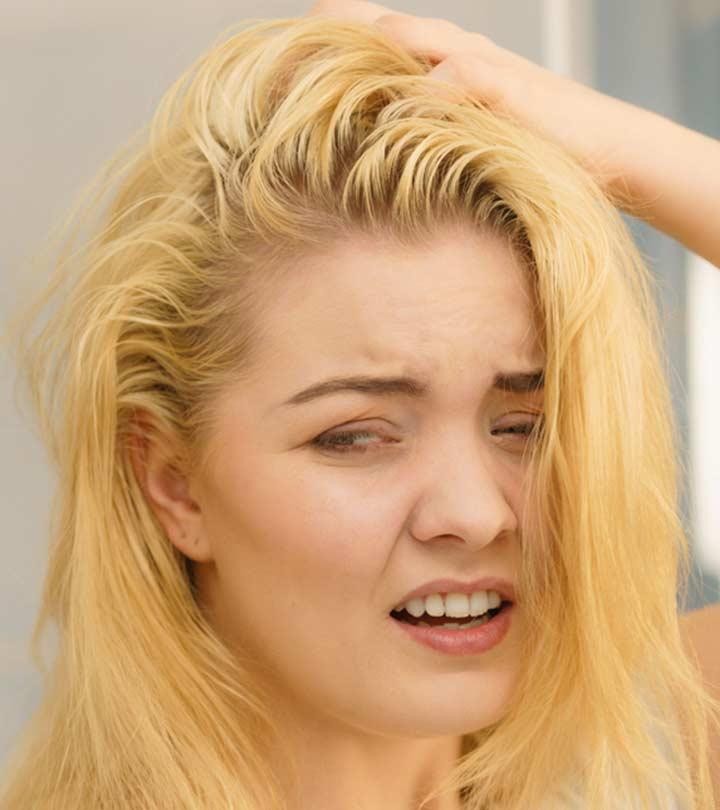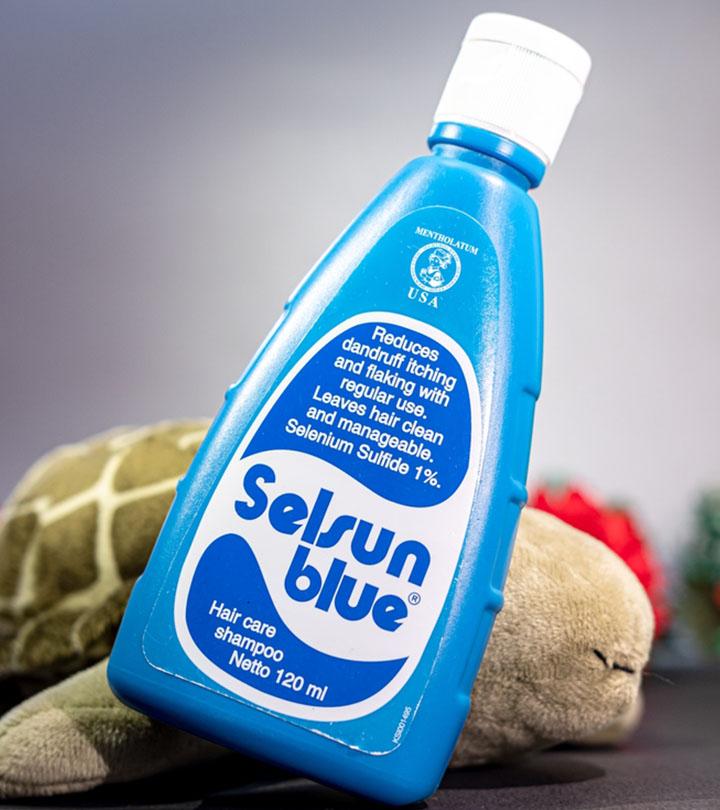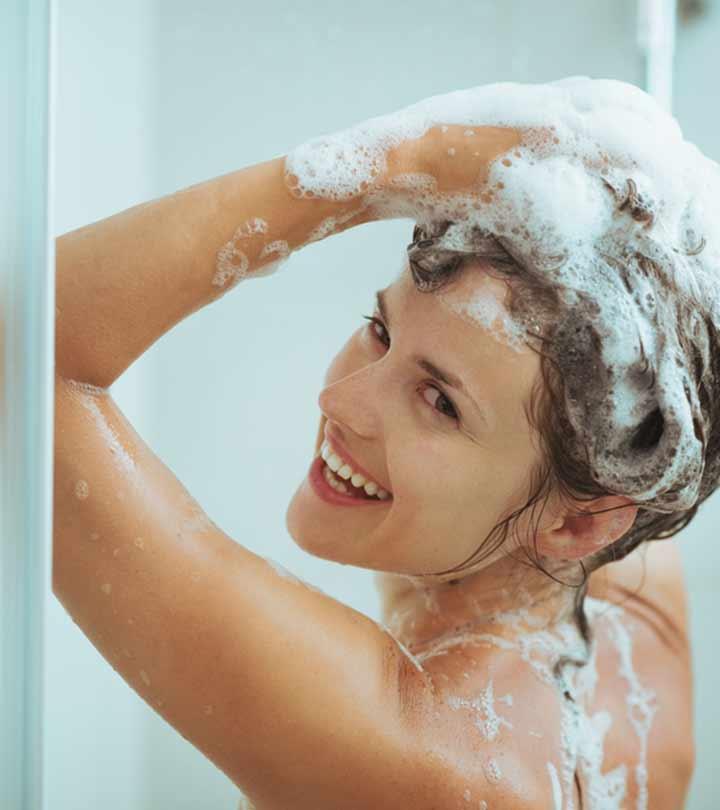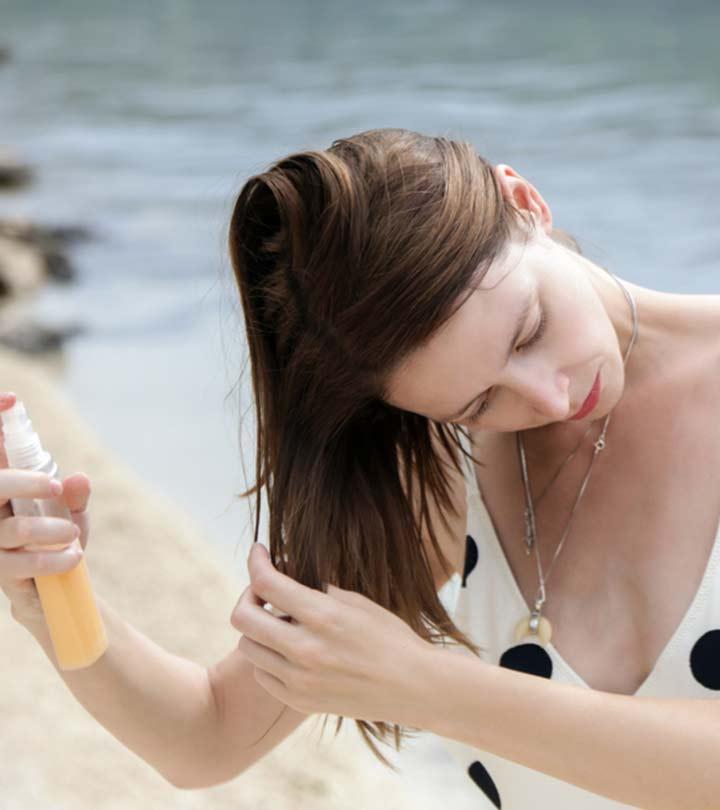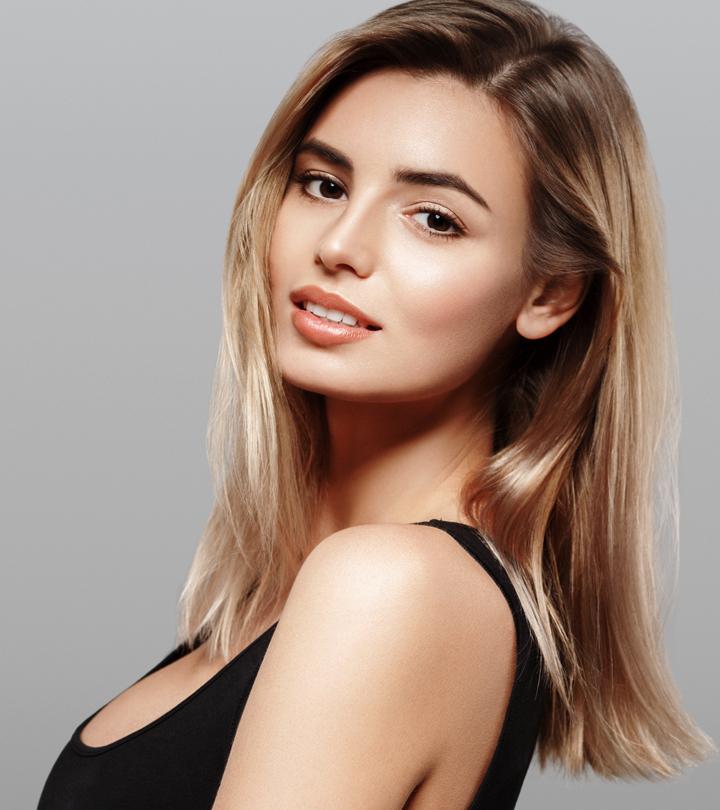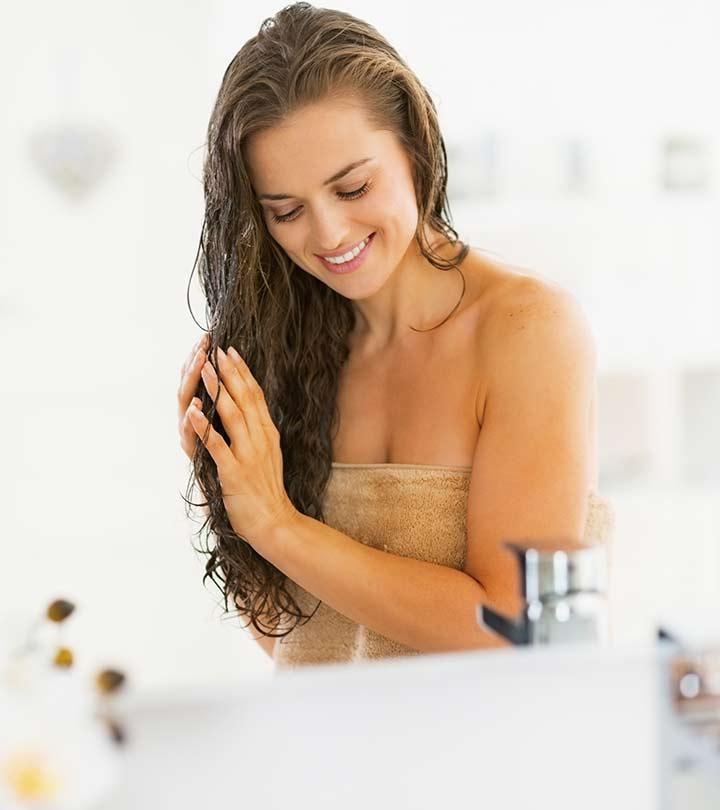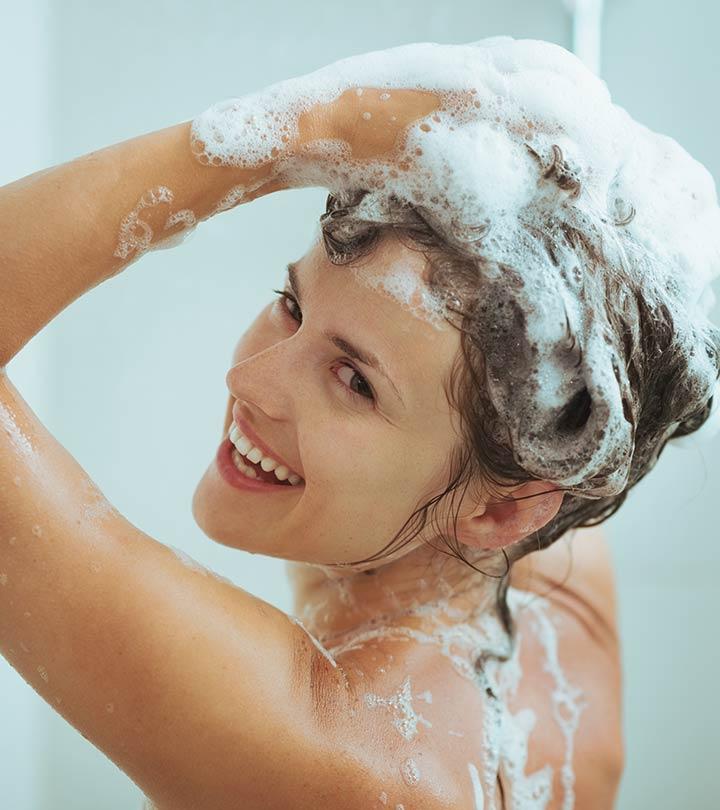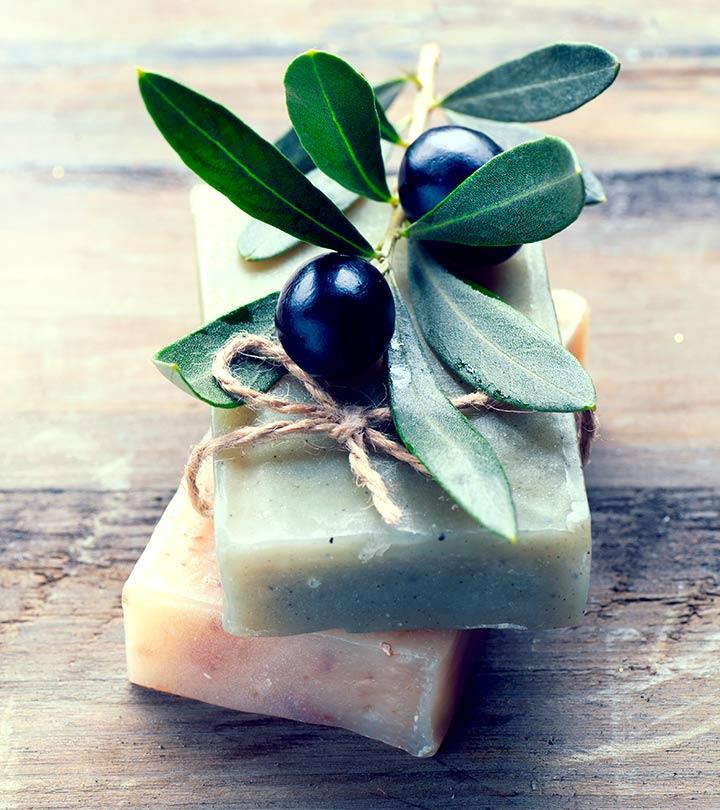12 Effective Homemade Hair Conditioners: Benefits + How They Work
Easy DIY solutions to keep your precious locks moisturized, soft, and frizz-free!
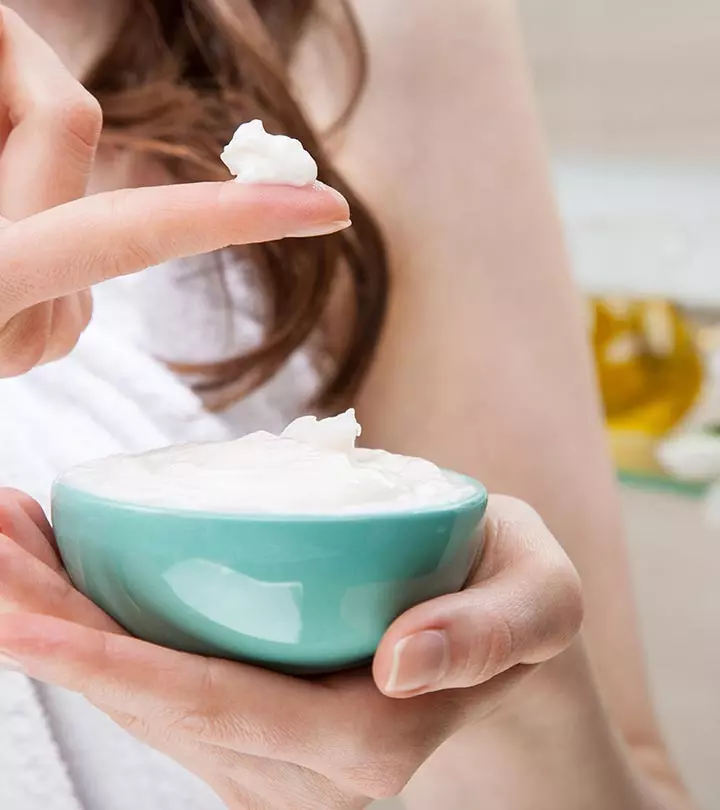
Image: ShutterStock
Conditioning is a method of keeping your hair moisturized and keeping it feeling silky soft and frizz-free. Using chemical-filled conditioners on your hair, on the other hand, can be harmful in the long run. Thankfully, all you need are some homemade hair conditioners. After all, pricey store-bought products do not do much to mend and renew dry and damaged hair.
Yes, you read that correctly. In this article, we have listed some of the best natural hair conditioners you can prepare at home. Check them out!
How Do Hair Conditioners Work?
We know that conditioners help rejuvenate hair by repairing damaged, dry, or chemically-treated hair, but how exactly does a hair conditioner work? When applied to the hair shaft, they keep the scale like-tiles of the cuticle intact. The protein within these ingredients binds with the keratin in the hair and strengthens the hair shaft (1).
There are many benefits of conditioning your hair. Check them out below.
Benefits Of Hair Conditioners
- Revive damaged, dry, and chemically-treated hair (2)
- Decrease the friction between hair fibers (2)
- Reduce frizz (2)
- Smoothen your hair and make it more manageable (2)
- Enhance shine (2)
- Improves hydrophobicityi The property of a particular substance that lacks affinity to water and repels it instead of absorbing or getting dissolved in it. of hair fiber (2)
Whether you have natural kinky, curly, wavy, or straight hair, hair conditioners give your hair the moisture it needs. Now, let’s get to the DIY homemade hair conditioners!
Note: Before using these homemade conditioners, rinse your hair with warm water to open up the cuticles and help the conditioner reach the hair follicle. Since these are homemade conditioners, they can be applied to the scalp.
12 Homemade DIY Hair Conditioners Using Ingredients From Your Kitchen!
Caution:Before using these homemade conditioners on your hair, do a patch test on your arm to see if they suit your skin or cause irritation. If your skin becomes red or itchy, consult a doctor before trying them.
1. Homemade Hair Conditioner With Honey And Olive Oil
Both olive oil and honey are natural conditioners that help hydrate and nourish your hair (3). Honey also helps prevent dandruff caused by seborrheic dermatitisi A skin disorder that causes red, inflamed, scaly patches that commonly affect the scalp or any other oily areas on the skin. (4).
You Will Need
- 2 tablespoons honey
- 4 tablespoons olive oil
- Shower cap
Processing Time
30 minutes
Process
- In a bowl, combine the honey and olive oil until you get a smooth mixture.
- Divide your hair into four sections and start applying the mixture to it.
- Once your hair is fully covered in the honey-oil mixture, cover it with a shower cap.
- Leave the mask in for about 30 minutes and then proceed to wash your hair.
- Rinse the mask out with a mild sulfate-free shampoo and finish with regular conditioner.
How Often?
Once a week, or twice a month.
 Quick Tip
Quick Tip2. Homemade Hair Conditioner With Egg And Olive Oil
The yolk of an egg can be extremely hydrating as it also contains fats. The egg yolk helps promote hair growth (5). It also helps preserve hair endings and rejuvenate damaged hair. It helps reduce hair loss, dandruff, and baldness and acts as a good natural conditioner for hair (3). This hair conditioner is great for dry hair.
You Will Need
- 2 egg yolks
- 2 tablespoons olive oil
- Water
Processing Time
1-2 hours
Process
- In a bowl, combine the olive oil and egg yolks until you get a smooth mixture. To this, add a little bit of water to make it easier to apply.
- Divide your hair into four sections and start applying the mixture to it. Optionally, you can work the mixture down from the mid-lengths of your hair or apply it to just the ends.
- Once your hair is fully covered in the egg-oil mixture, cover it with a shower cap.
- Leave the mask in for a couple of hours and then proceed to wash your hair.
- Rinse the mask out with a mild sulfate-free shampoo and finish with regular conditioner. Remember to use cool water while you wash your hair to keep the egg from ‘cooking.’
How Often?
Once a week.
3. Homemade Hair Conditioner With Coconut Oil
Coconut oil is an excellent hair conditioner that works wonders for your hair with extended use. It contains fatty acids with penetrative properties that help nourish and condition your hair from deep within (2).
You Will Need
- 3 tbsp Coconut Oil
- Hot Towel
Processing Time
45 minutes
Process
- Heat the coconut oil for a couple of seconds until it is slightly warm.
- Start massaging this oil into your scalp and work it down to the tips of your hair.
- Ensure to focus on the tips as these parts need most conditioning.
- Once your hair and scalp are fully covered, wrap your hair with a hot towel and wait for 45 minutes.
- Proceed to wash your hair with cool water and a mild sulfate-free shampoo. Finish with conditioner.
How Often?
2-3 times a week.
4. Homemade Hair Conditioner With Shea Butter
Shea butter is an abundant source of fatty acids and oils. It is rich in vitamin C and has antioxidant and anti-inflammatory properties that help keep scalp infections and dandruff at bay (6). Shea butter is widely used as a conditioner, especially by women with kinky hair. Anecdotal evidence suggests that it tames frizz, reduces split ends, protects damaged hair, and hydrates your hair. Shea butter is one of the best natural scalp treatments which you can avail yourself sitting at home.
You Will Need
- 1 tablespoon shea butter
- 2 tablespoons coconut oil
- 1 teaspoon argan oil
- 2-3 drops of an essential oil of your choice (Optional)
Processing Time
30 minutes
Process
- Warm the coconut oil and shea butter together until you get a melted mixture.
- To this, add the argan oil and whip all the ingredients until they are well combined.
- Optionally, you can add a couple of drops of an essential oil of your choice.
- Start applying the mixture to your hair, working it into the roots and down to the tips of your hair.
- Once your hair is fully covered, let the mixture sit for about 30 minutes.
- Proceed to wash your hair with cool water and mild sulfate-free shampoo. Finish with conditioner.
How Often?
2-3 times a week.
Ela Gale, a Youtuber, shared her experience with homemade hair conditioners and how she benefits from them. She says, “It is really easy to use and makes my hair really nourished and conditioned (i).” She mixes shea butter, coconut oil, vitamin E oil, lavender and rosemary essential oil, then uses the blend on her dry tresses.
5. Homemade Hair Conditioner With Baking Soda
Baking soda is an effective ingredient for removing the dirt and build-up from your hair and scalp. It has antifungal properties that keep your scalp clean and prevent scalp infections (7).
Note: Use only the recommended amount of baking soda. Using too much baking soda can lead to scalp irritation and hair damage due to its pH level.
You Will Need
- 1/4 cup baking soda
- 1/2 cup conditioner
- Plastic bag
- Hot towel
Processing Time
1 hour
Process
- In a plastic bowl, mix the baking soda and hair conditioner until you get a well-combined mixture.
- Start applying this to your hair. Work it down from your roots to the tips of your hair.
- Once your hair is fully covered in the mixture, cover it with a plastic bag. Wrap a hot towel over the plastic bag and wait for an hour.
- Proceed to rinse your hair with cool water.
How Often?
Once a month
6. Homemade Hair Conditioner With Banana
Banana is an excellent source of silica (8). Silica helps reduce hair loss and makes the hair brighter (9). It also helps condition your hair and replenishes damaged hair endings, making your tresses soft and bouncy (3). It is most commonly used with olive oil as a remedy for hair. When combined with olive oil, it creates a good conditioning mix.
You Will Need
- 1 ripe banana
- 2 tablespoon olive oil
- 1 tablespoon honey
- Shower cap
Processing Time
30 minutes
Process
- In a bowl, mash the banana until it is completely free of lumps.
- To the mashed banana, add the olive oil and honey. Mix well.
- Apply this mixture to your hair until it is fully covered.
- Proceed to cover your hair with a shower cap or a plastic bag to avoid a mess. Wait for 30 minutes.
- Wash your hair with cool water and a mild sulfate-free shampoo. Finish with conditioner.
How Often?
Once a week.
7. Homemade Hair Conditioner With ACV And Guar Gum
Guar gum is used in many hair conditioners and shampoos as a conditioning agent (10). It helps add body and thickness to the hair. Although research has not been done on the benefits of apple cider vinegar for hair, anecdotal evidence suggests that it helps reduce dandruff and maintain the pH level of your hair.
You Will Need
- 2 cups water
- 2 teaspoon guar gum
- 1 teaspoon carrier oil (olive oil, coconut oil, or jojoba oil)
- 1/2 cup apple cider vinegar
- 10-20 drops rosemary essential oil
Processing Time
5 minutes
Process
- Boil the water with the guar gum while stirring with a whisk. Once the mixture has boiled for about a minute, remove it from the heat.
- To this mixture, add the carrier oil, apple cider vinegar, and then the rosemary essential oil. Optionally, you can use a different essential oil of your choice.
- Pour the mixture into a container for storing. The mixture will thicken as it cools.
- Proceed to wash your hair with cool water and a mild sulfate-free shampoo. Finish with using the guar gum mixture in place of your regular conditioner.
How Often?
2-3 times a week.
 Quick Tip
Quick Tip8. Homemade Hair Conditioner With Apple Cider Vinegar
Anecdotal evidence suggests that apple cider vinegar moisturizes your hair and makes it shiny and easier to detangle. Many kinky-haired bloggers recommend ACV for cleansing curly hair and as a natural conditioner.
You Will Need
- 2 tablespoons apple cider vinegar
- 1 cup water
Processing Time
5 minutes
Process
- In a jug, dilute the apple cider vinegar with one cup of water.
- Set this aside and proceed to wash your hair with cool water and a mild sulfate-free shampoo.
- Condition your hair and then pour the apple cider vinegar rinse through your wet hair.
- Massage it into your scalp and ensure that it is evenly spread throughout your hair.
- It is recommended to leave the rinse in your hair, but you can proceed to finish your hair wash with a final cool water rinse.
How Often?
Once every fortnight.
9. Homemade Hair Conditioner With Mayonnaise And Egg
Mayonnaise is one of the most popular remedies for hair loss, dryness, and lice. Though there is no scientific evidence to back this up, there is quite a bit of anecdotal evidence. Mayonnaise contains oils that deeply condition your hair while eggs are packed with proteins that provide nourishment. This pack helps make your hair silky and manageable.
You Will Need
- 2 whole eggs
- 5 tablespoons mayonnaise
- 1 teaspoon olive oil
Processing Time
20 minutes
Process
- In a bowl, whisk the eggs and mayonnaise together until you get a smooth mixture. To this, add the olive oil. Mix well.
- Apply the mixture to your hair from root to tip like a hair mask.
- Once your hair is fully covered, leave the mixture in for about 20 minutes.
- Proceed to wash your hair with cool water and a mild sulfate-free shampoo. Finish with conditioner.
How Often?
Once a week.
10. Coconut Milk Hair Conditioner
Coconut milk and its extracts are great emollientsi Substances that soften and smoothen the hair and reduce itching and dryness thanks to their moisturizing properties. for hair. It is vitamin-enriched, containing vitamins B, C, and E that help maintain hair health (11).
You Will Need
- 1 1/2 tablespoon coconut milk
- 1 tablespoon shampoo
Processing Time
5 minutes
Process
- Mix the coconut milk and shampoo well.
- Use this mixture to shampoo your hair as you normally would.
- Proceed to condition your hair.
- Once you’re out of the shower, take 1/2 tablespoon of coconut milk in your palm and work this through your hair.
- Leave it in your hair and proceed to style.
How Often?
2-3 times a week.
11. Yogurt Hair Conditioner
Yogurt and olive oil are great for your hair. Yogurt helps in protecting the hair endings, rejuvenating damaged hair, and reducing baldness. Olive oil is known to protect hair from damage, dandruff, and hair loss (3).
You Will Need
- 1 egg
- 1 teaspoon olive oil
- 2 tablespoons yogurt
- Shower cap
Processing Time
5 minutes
Process
- Mix all the ingredients in a blender until you achieve a smooth consistency.
- Apply the mixture to your damp hair and massage gently.
- Cover your hair with a shower cap for 15 minutes.
- Wash off the mixture using cold water.
How Often?
Once every two weeks.
12. Aloe Vera And Banana Hair Conditioner
Aloe vera has been used to reduce hair loss since 70 AD (12). It contains vitamins, minerals, amino acids, and salicylic acid. Salicylic acid is known to help treat alopecia and dandruff (13),(14). Banana is rich in vitamin B, which is important for preventing hair loss (15). This is an effective plant-based hair conditioner to combat scalp-related issues.
You Will Need
- 1 fresh aloe vera leaf (filled with gel)
- 2 medium-sized bananas
- Shower cap
Processing Time
5 minutes
Process
- Scoop out the pulp from the aloe vera leaf.
- Peel and cut the bananas.
- Transfer the aloe vera pulp and bananas to a blender.
- Blend the mixture thoroughly, leaving no lumps.
- Shampoo your hair and let it air dry.
- Start applying the mixture with a hair coloring brush.
- Get the mixture deep into your roots and coat your entire scalp and all your hair.
- Put your hair up in a loose bun and cover it with a shower cap.
- Leave it on for 2 hours.
- Wash your hair with cold water and shampoo it thoroughly.
Discover how to make your own effective DIY hair conditioner with simple pantry ingredients. Watch this easy-to-follow video to help you achieve the beautiful hair you have always wanted.
Infographic: 5 Effective DIY Hair Conditioners Using Olive Oil
Olive oil is one of the most beneficial ingredients for hair and fortunately, it can be used in a variety of ways to nourish and condition different hair types. In fact, you can add it to homemade hair conditioners to transform your tresses.
Check out the infographic below to find out 5 easy and effective ways of using olive oil for making conditioners at home. Illustration: StyleCraze Design Team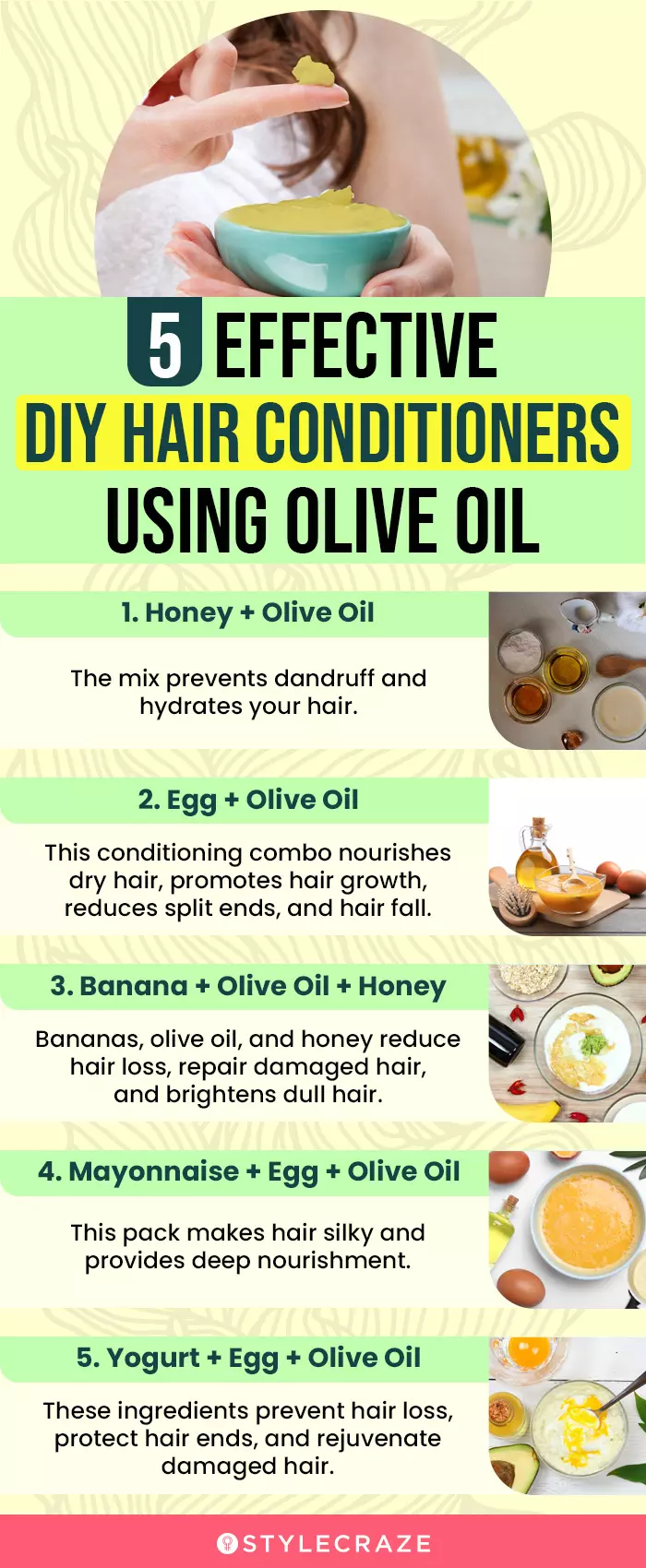
These homemade hair conditioners repair and nourish your hair from deep within. The best thing about these conditioners is that they are made with simple ingredients you can find in your pantry or your local grocery store. And each natural ingredient brings its own set of benefits that fortify your hair, making it look and feel healthy. Use these conditioners every other week and watch your hair transform with reduced frizz, more manageability, increased shine and bounce, decreased breakage, reduced damage and dryness, and better moisturization.
Frequently Asked Questions
What is the best thing for extremely dry hair?
According to Dr. Michael May, MD, a hair transplant surgeon, “Obtaining more moisturization will help bring back the shine. Curly hair formulas are incredibly helpful in hydrating the hair.”
Can I leave the conditioner overnight?
Dr. May says, “It depends on what kind of hair conditioner you are using. It is best to use conditioners based on what is instructed on the packaging. Leaving it for longer than what is instructed can do more damage than good.”
What is the right way to apply hair conditioner?
Apply the conditioner from the roots to the tips of your hair. Massage the conditioner into your scalp after rinsing your hair with hot water. This helps the conditioner reach the hair follicles.
Can conditioners help rejuvenate split ends?
Split ends arise when the hair cuticle tiles split and expose the cortex. Conditioners are protein-rich and those proteins bind with the keratin in the hair cuticle to strengthen it.
How long should I leave in a conditioner?
There are two types of conditioners: leave-in conditioners and wash-off conditioners. Wash-off conditioners are applied right after shampooing the hair. You need to leave them on for 5 to 10 minutes before washing them off. Leave-in conditioners are applied after stepping out of the shower. They can be left in the hair until the next wash. If you want to deep condition your hair, leave it on your hair for no more than 30 minutes.
What is the difference between a conditioner and a deep conditioner?
A regular conditioner is thinner in consistency and will nourish your hair at a surface level. Deep conditioners are thicker in consistency and keep your hair hydrated for a longer time. They also condition your hair from within. Deep conditioning nourishes and strengthens hair leaving them healthy and shiny.
What happens if you don’t rinse out a deep conditioner?
If you do not rinse out your deep conditioner, it can leave a residue behind on your hair. This residue will clog your hair follicles and make your hair heavy, sticky, and oily.
Key Takeaways
- Hair conditioners hydrate your hair and reduce frizz.
- You can use natural ingredients like avocado, coconut oil, jojoba oil, castor oil, and honey to make homemade hair conditioners.
- Apple cider vinegar is highly recommended for moisturizing curly and kinky hair,
- Add essential oils like lavender and rosemary for a mild and soothing fragrance.
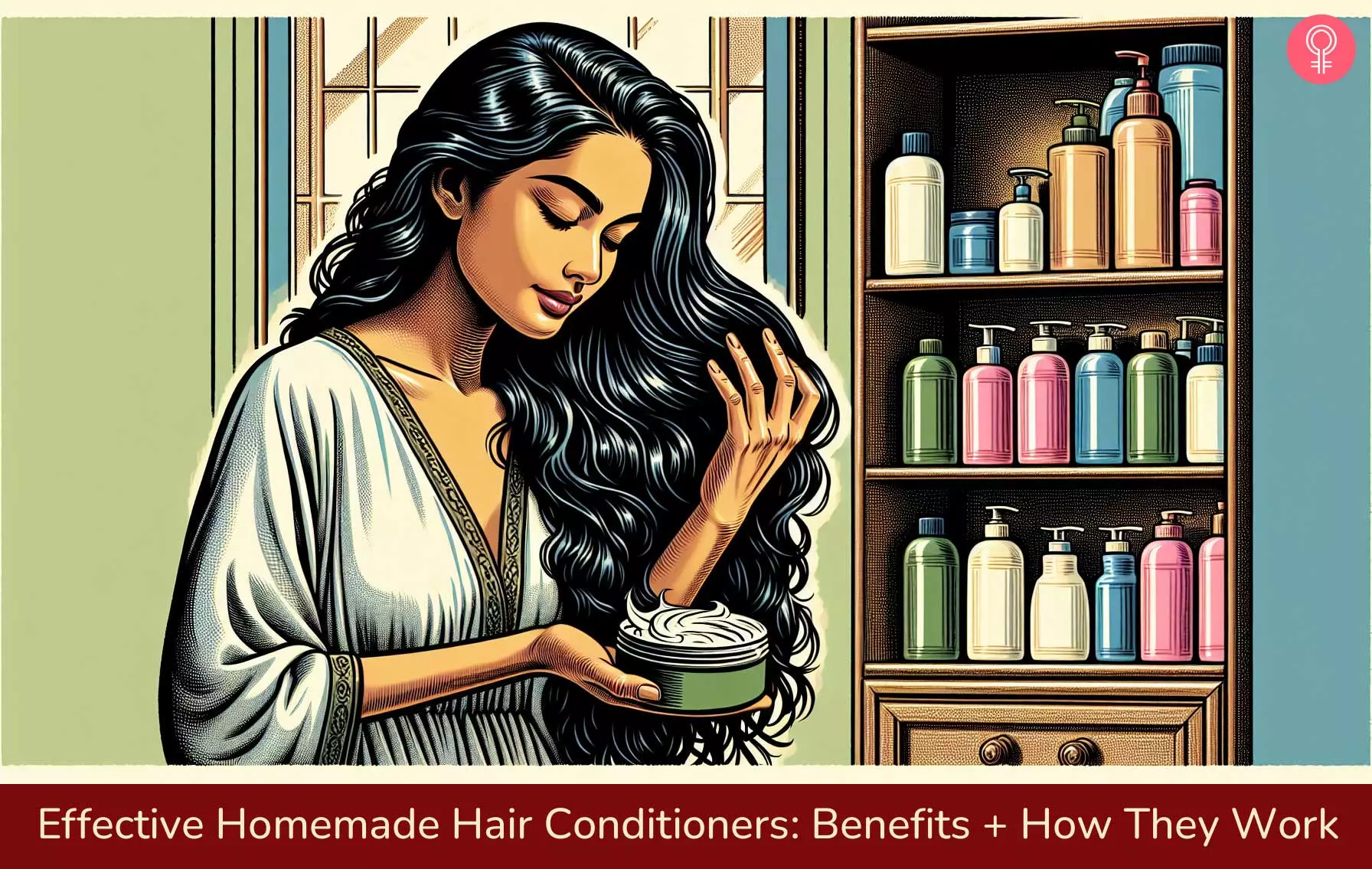
Image: Dall·E/StyleCraze Design Team
Personal Experience: Source
StyleCraze's articles are interwoven with authentic personal narratives that provide depth and resonance to our content. Below are the sources of the personal accounts referenced in this article.
i. Natural Deep Hair Conditionerhttps://youtu.be/ZmLXD1OPSoU?feature=shared
References
Articles on StyleCraze are backed by verified information from peer-reviewed and academic research papers, reputed organizations, research institutions, and medical associations to ensure accuracy and relevance. Read our editorial policy to learn more.
- Essentials of Hair Care often Neglected: Hair Cleansing, International Journal Of Trichology, US National Library Of Medicine, National Institutes of Health.
https://www.ncbi.nlm.nih.gov/pmc/articles/PMC3002407/ - Hair Cosmetics: An Overview, International Journal Of Trichology, US National Library Of Medicine, National Institutes of Health.
https://www.ncbi.nlm.nih.gov/pmc/articles/PMC4387693/ - Ethnopharmacological Survey Of Home Remedies Used For Treatment Of Hair And Scalp And Their Methods Of Preparation In The West Bank-Palestine, BMC Complementary And Alternative Medicine, US National Library Of Medicine, National Institutes of Health.
https://www.ncbi.nlm.nih.gov/pmc/articles/PMC5499037/ - Therapeutic And Prophylactic Effects Of Crude Honey On Chronic Seborrheic Dermatitis And Dandruff, European Journal Of Medical Research, US National Library Of Medicine, National Institutes of Health.
https://www.ncbi.nlm.nih.gov/pubmed/11485891 - Naturally Occurring Hair Growth Peptide: Water-Soluble Chicken Egg Yolk Peptides Stimulate Hair Growth Through Induction of Vascular Endothelial Growth Factor Production, Journal Of Medicinal Food, US National Library Of Medicine, National Institutes of Health.
https://www.ncbi.nlm.nih.gov/pubmed/29583066 - Nutritional Composition Of Shea Products And Chemical Properties Of Shea Butter: A Review, Critical Reviews In Food, Science And Nutrition, US National Library Of Medicine, National Institutes of Health.
https://www.ncbi.nlm.nih.gov/pubmed/24261539 - Antifungal Activity Of Sodium Bicarbonate Against Fungal Agents Causing Superficial Infections, Mycopathologia, US National Library Of Medicine, National Institutes of Health.
https://www.ncbi.nlm.nih.gov/pubmed/22991095 - The comparative absorption of silicon from different foods and food supplements, The British journal of nutrition, US National Library Of Medicine, National Institutes of Health.
https://www.ncbi.nlm.nih.gov/pmc/articles/PMC2744664/ - Use Of Silicon For Skin and Hair Care: An Approach Of Chemical Forms Available And Efficacy, Brazilian Society Of Dermatology, US National Library Of Medicine, National Institutes of Health.
https://www.ncbi.nlm.nih.gov/pmc/articles/PMC4938278/ - Shampoo And Conditioner: What A Dermatologist Should Know?, Indian Journal Of Dermatology, US National Library Of Medicine, National Institutes of Health.
https://www.ncbi.nlm.nih.gov/pmc/articles/PMC4458934/ - Coconut Oil Health Benefits, Coconut Development Board, Ministry Of Agriculture And Farmers Welfare.
https://coconutboard.gov.in/ - Chapter 3: Evaluation Of The Nutritional And Metabolic Benefits Of Aloe Vera, Herbal Medicine: Biomolecular And Clinical Aspects, NCBI.
https://www.ncbi.nlm.nih.gov/books/NBK92765/ - Treatment Of Androgenetic Alopecia In Females In Reproductive Age With Topical Estradiolbenzoate, Prednisolon And Salicylic Acid, Folia Medica, US National Library Of Medicine, National Institutes of Health.
https://www.ncbi.nlm.nih.gov/pubmed/11347332 - Dandruff: The Most Commercially Exploited Skin Disease, Indian Journal Of Dermatology, US National Library Of Medicine, National Institutes of Health.
https://www.ncbi.nlm.nih.gov/pmc/articles/PMC2887514/ - The Role Of Vitamins And Minerals In Hair Loss: A Review. Dermatology And Therapy, US National Library Of Medicine, National Institutes of Health.
https://www.ncbi.nlm.nih.gov/pmc/articles/PMC6380979/
Read full bio of Tiffany Young
- Dr. Michael May, MD, is the Medical Director and Principal Surgeon of the Wimpole Clinic in Harley Street, London. He has 25 years of experience in the field of hair transplant surgery and has completed over 10,000 hair transplant procedures. He is the current president of the European Society of Hair Restoration Surgery, a registered member of The Trichological Society, and a Diplomat of Hair Restoration Surgery (ABHRS).
 Dr. Michael May, MD, is the Medical Director and Principal Surgeon of the Wimpole Clinic in Harley Street, London. He has 25 years of experience in the field of hair transplant surgery and has completed over 10,000 hair transplant procedures. He is the current president of the European Society of Hair Restoration Surgery, a registered member of The Trichological Society, and a Diplomat of Hair Restoration Surgery (ABHRS).
Dr. Michael May, MD, is the Medical Director and Principal Surgeon of the Wimpole Clinic in Harley Street, London. He has 25 years of experience in the field of hair transplant surgery and has completed over 10,000 hair transplant procedures. He is the current president of the European Society of Hair Restoration Surgery, a registered member of The Trichological Society, and a Diplomat of Hair Restoration Surgery (ABHRS).
Read full bio of Ramona Sinha
Read full bio of Krati Darak





